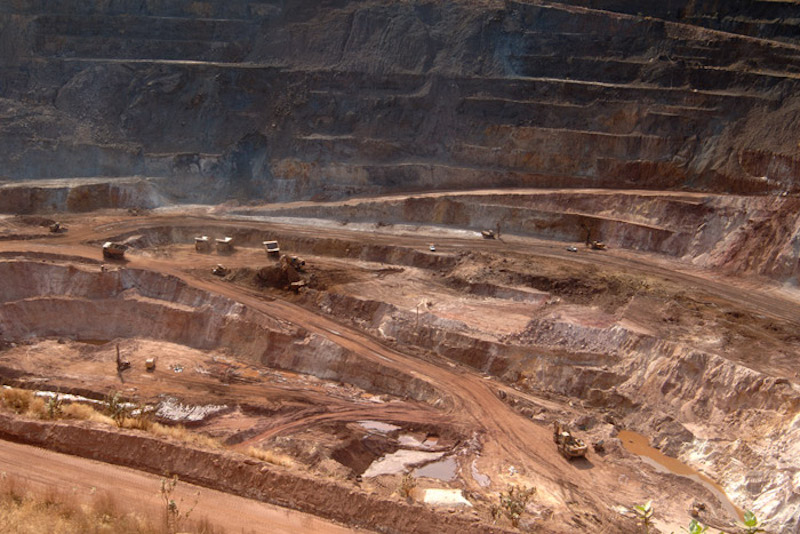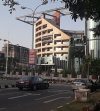The presence of Russia in the African mining sector is based not only on companies driven by a logic of economic profitability, but also on companies connected to the paramilitary group Wagner which serve to promote the geopolitical influence of Moscow and to reduce the effects of Western sanctions.
Beyond its purely economic objectives, Russia’s growing involvement in the mining sector in Africa constitutes an important instrument of geopolitical influence and a means that allows Moscow to circumvent Western economic and financial sanctions, estimated the French Institute of International Relations (IFRI) in a report published on April 7.
Entitled “Russia’s mining strategy: geopolitical ambitions and industrial challenges”, the report underlines that the presence of Russian mining companies on the continent is based, on the one hand, on the expertise and mastery of the value chain in certain sectors, and on security and military assistance on the other hand. These two dimensions follow different logics.
The first logic is economic. It aims to exploit minerals and metals in which Russian mining groups are present and recognized in this sector. This is particularly the case of the diamond company Alrosa (Angola, Zimbabwe and the Democratic Republic of Congo) and the company Rusal (Guinea), which master the diamond and bauxite sectors respectively. Although they may indirectly serve Moscow’s interests on the continent, the objective of these established mining players is above all economic in nature.
The second logic concerns Moscow’s geopolitical interests in Africa. In this respect, the exploitation of mineral deposits is more a means than an end. In this context, the Wagner group, led by Evgueni Prigojine, a Russian oligarch close to President Vladimir Putin, is far from being a free electron, battling according to its own interests. This private military company largely cashes in on its support for contested regimes in exchange for lucrative mining contracts, to rack up profits and promote Russian influence on the continent.
In the Central African Republic, the intricacy between the activities of Wagner and the mining companies Finans M (Russia) and Lobaye Invest (Central African Republic), supposedly controlled by Evgueni Prigojine, reveals the nature of these links, far from the economic logics which traditionally operate in the mining industry. In 2018, licenses to exploit diamond and gold deposits were awarded to a reputable Russian company close to the founder of Wagner. To strengthen this control, the group of mercenaries even undertook to modify the local mining code in order to establish a monopoly on these two precious minerals in the country.
Minerals, alternatives to the traditional financial circuit
In 2017, companies linked to the Wagner galaxy also obtained major mining concessions for gold and diamond deposits in Sudan.
The report also points out that these companies connected to the paramilitary group are proving useful in counterbalancing the effects of the economic and financial sanctions imposed on Moscow since the start of the war in Ukraine. The exploitation of African mineral resources is a means of circumventing the sanctions regime, in particular the isolation of Russia from the international banking system. Alternatives to the traditional financial circuit, precious minerals such as gold and diamonds are useful for escaping banking sanctions, as they can be sold and exchanged without control or restriction.
Sudan, a major world gold producer, would be a strategic supplier for Russia in this context, which already has gold reserves equivalent to 130 billion dollars. These remain an important shield to mitigate the economic consequences of the war in Ukraine.
IFRI indicates in this context that the Russian mining industry has not been directly targeted by the successive waves of sanctions imposed by Western countries on Moscow since the annexation of Crimea in 2014. For Western powers, it is difficult to target a sector strongly integrated into the value chains of many economic segments (aeronautics, automotive, communication, energy, etc.). Russia is indeed one of the main suppliers of many minerals and metals (aluminum, titanium, palladium, nickel) and therefore has leverage on the market for these raw materials.
Its intertwining with the global economy is such that the London Metals Market (LME) has finally taken the decision not to prohibit the trading and storage of metals from Russia in its system. For its part, the European Union (EU) gave up in extremis to impose sanctions against the diamond giant Alrosa under pressure from Belgium. The fact that the city of Antwerp remains the largest diamond trading center in the world probably has something to do with it.




















Réagissez à cet article